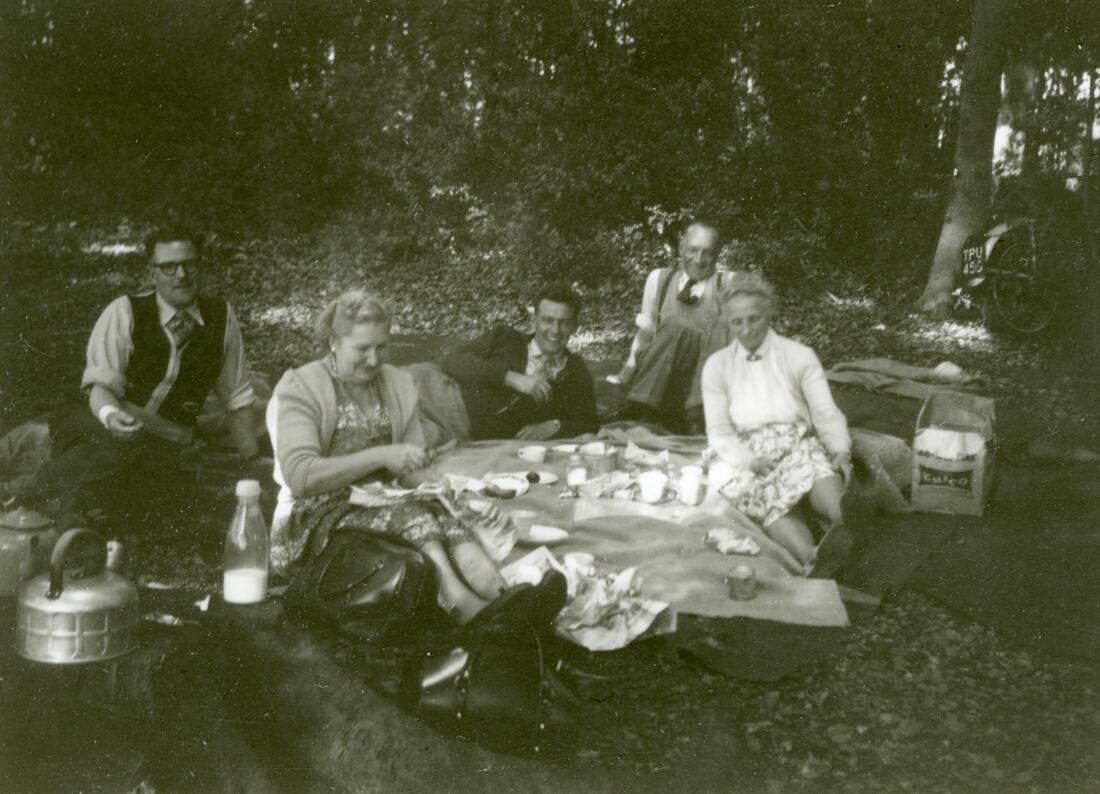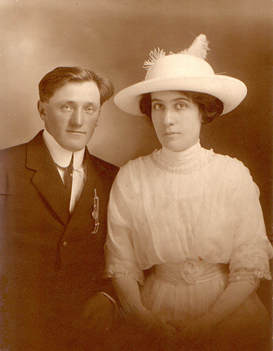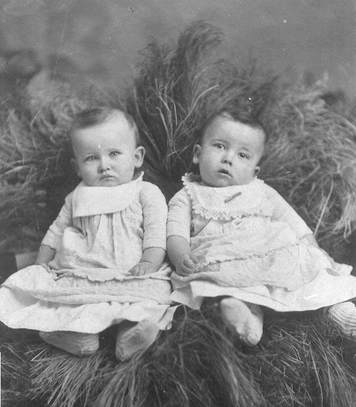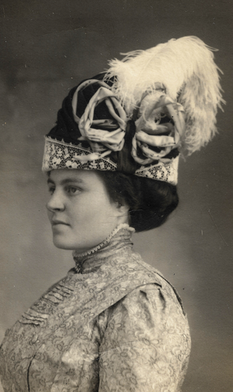 Photo by Brett Jordan on Unsplash A recent trip to Minneapolis made me appreciate the less busy highways of my region. With summer construction and more travelers, it was certainly a challenge navigating these roads. It made me wonder about the travels and possible vacations of my ancestors. Depending on where they lived and their social-economic status there were likely some trips to visit relatives or other states. Some may have ventured back across the ocean to the homeland. Let’s look at ways to find this information. While it is true that many of our early pioneer relatives did not go off on summer holidays like we do today, they may have traveled to see parents or siblings in nearby states. Or traveled to a local lake for fishing and a picnic. People liked to socialize with others no matter in what period of history they lived. Here are a few ideas of research routes to seek out travel and vacations of your ancestors.
Newspapers In the local community newspapers, you can find a wealth of information about the comings and goings of the people of that community and beyond. If neighbors and relatives visited, if they traveled to “town” or ventured further away to another state, it was often noted under the “local news” section. You may also want to take a closer look at obituary and marriage notices. You may discover that siblings and other relatives came for the events. Newlywed couples may have traveled to a larger city or made a tour by visiting relatives around the country. Passports If your ancestors traveled back to the home country and it was later (1900s) there might be a passport record for them. The ones that I have seen include photos and physical descriptions as well as the purpose of the visit. You may also find something noted in the newspapers of the time. Diaries If you have a personal diary or even a notebook that recorded events, weather, and other data, these may be clues to who your ancestors associated with or if they did have family and friends visit them during the year. For instance, my grandmother would note in a small notebook when her son came home to visit from the service or when her daughters visited from another town. Often there is corroboration between the newspaper happenings and those personal notes. Travel Journals In the 1940s my grandmother received the gift of a travel journal which I treasure. She has recorded the dates and places she was traveling as well as comments about what she saw, who she was with and other items that she found interesting. While not everyone has this, if you do, take some time to transcribe this information. It may help you place the location of other relatives or even identify a collateral branch that you haven’t researched. Ephemera Depending on your style, you may have kept ticket stubs and other ephemera from travels that your descendants could use to track your trips. Perhaps your ancestors did the same. I can’t say that mine have but I think how cool it would be to have a copy of their ship ticket from Europe?! Ah well there are likely few of us with treasures like that. Letters If you have letters from aunts and uncles, grandparents, great-aunts and uncles and other relatives, reread them. They may provide clues about family travel including your direct line. Photographs Remember when we had photographs from our trips instead of the digital snaps? When we used to send in our film and print our photos, they often came with dates. While we can’t assume that the dates reflected the exact date of an event, we can use the dates to approximate the date. (Remember how long it took to use up a 24-print roll of film?) In the older sepia prints, there is often the photographer’s name and location. Even if we don’t have the date of an event, we at least know that they were in a particular location. Family Our family and extended relatives have all kinds of family stories and information that you would never find in a record today. Because they were there or often heard about a particular story of travel or relatives, this information gives us another clue about our travels. Books There are stories about emigrant travels, local histories that talk about celebrations or events and even local travel books that share information about regional places that your ancestor may have travels. You also could check on information regarding the railroad, highways and other modes of transportation that were available at that time. The Interstate Highway system is something that we take for granted but it didn’t start until 1956. I hope you have fun exploring travel and your ancestors. Have a great trip!
0 Comments
Leave a Reply. |
AuthorWith a lifelong passion for genealogy and history, the author enjoys the opportunity to share genealogy tidbits, inspiring others to research and write their family story. Archives
July 2024
Categories |



 RSS Feed
RSS Feed